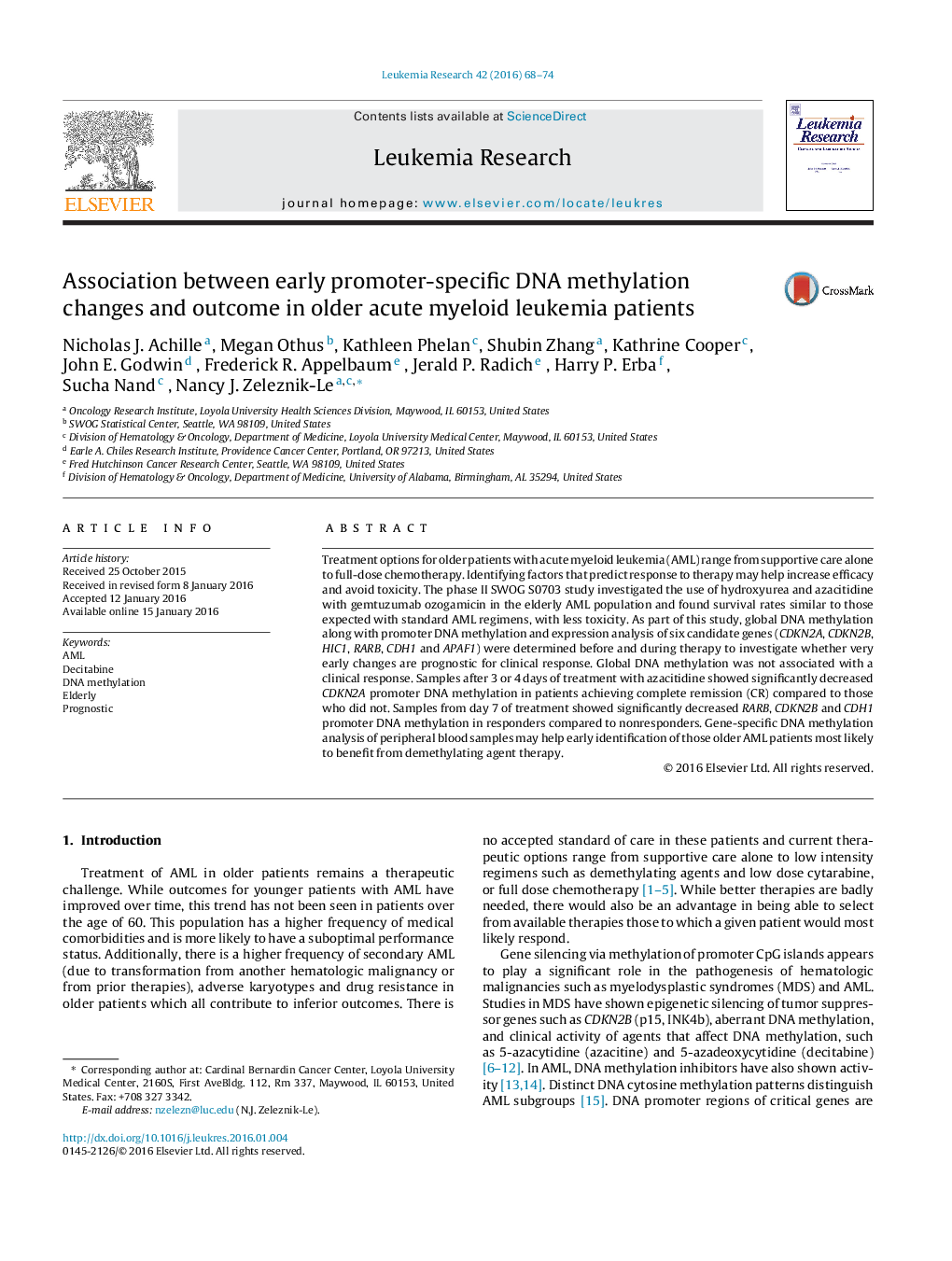| Article ID | Journal | Published Year | Pages | File Type |
|---|---|---|---|---|
| 2136358 | Leukemia Research | 2016 | 7 Pages |
•Very early peripheral blood promoter demethylation of some genes predict response.•Global DNA methylation decreased by one month in older AML patients on treatment.•Early methylation tests could help determine appropriate older AML therapy choice.
Treatment options for older patients with acute myeloid leukemia (AML) range from supportive care alone to full-dose chemotherapy. Identifying factors that predict response to therapy may help increase efficacy and avoid toxicity. The phase II SWOG S0703 study investigated the use of hydroxyurea and azacitidine with gemtuzumab ozogamicin in the elderly AML population and found survival rates similar to those expected with standard AML regimens, with less toxicity. As part of this study, global DNA methylation along with promoter DNA methylation and expression analysis of six candidate genes (CDKN2A, CDKN2B, HIC1, RARB, CDH1 and APAF1) were determined before and during therapy to investigate whether very early changes are prognostic for clinical response. Global DNA methylation was not associated with a clinical response. Samples after 3 or 4 days of treatment with azacitidine showed significantly decreased CDKN2A promoter DNA methylation in patients achieving complete remission (CR) compared to those who did not. Samples from day 7 of treatment showed significantly decreased RARB, CDKN2B and CDH1 promoter DNA methylation in responders compared to nonresponders. Gene-specific DNA methylation analysis of peripheral blood samples may help early identification of those older AML patients most likely to benefit from demethylating agent therapy.
